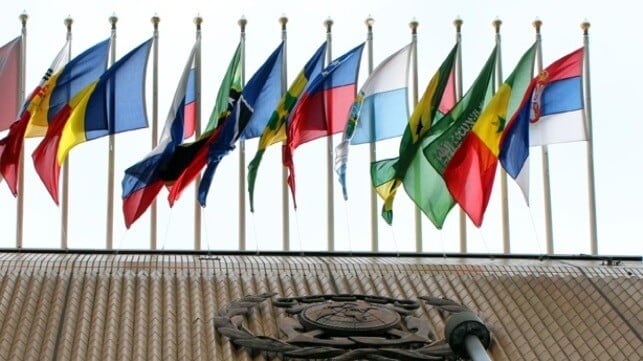Ahead of IMO Meeting, Critiques of Net-Zero Framework Emerge

Following the Trump administration's pointed criticism of the IMO's net zero greenhouse gas framework, a growing chorus of voices from industry are proposing to relax the terms of the agreement, which was tentatively approved at MEPC 83 five months ago.
On Thursday, a group of large shipowners announced that they would like to see changes in the deal and have "grave concerns" about the current text. Signatories include Bahri, Frontline, Capital Group, TMS, Dynagas, Gaslog, Hanwha Shipping, Angelicoussis Group and Stolt Tankers, among others.
"As it stands, we do not believe the IMO NZF will serve effectively in support of decarbonizing the maritime industry," the owners told Reuters in a joint statement, adding that "realistic" adjustment was needed before adoption should be considered.
Separately, DNV has suggested a rethink of the deal's terms for LNG, currently the shipping industry's most popular alternative fuel choice. The availability of true zero-carbon fuel is low, and DNV forecasts that the production projects to make it are likely to face headwinds for some time. Citing "pragmatism," DNV CEO Knut Orbeck-Nilssen has advocated for a more accepting view of LNG within IMO's net-zero framework.
On the other side of the Atlantic, ABS has advocated for a full "timeout" to think through the details of the net-zero framework. Chairman and CEO Christopher J. Wiernicki recently advised that "achieving net zero for shipping by 2050 looks like a wildcard."
While the deal has its skeptics, the Getting to Zero Coalition - Maersk, NYK, Fincantieri, Gard, CMB.Tech, BV and LR, among many others - has urged IMO to pass it as written. "Every year that action is delayed will compound into further delays down the road, as existing projects are scrapped and the planning cycle must begin anew. The absence of global regulatory guidance will raise the costs of change in the long run—costs that the industry, countries, and consumers will bear," the Coalition wrote.
But the overall policy environment has also changed since IMO took the first step down road to carbon regulation nine years ago. Carbon reduction measures have fallen into disfavor in Washington, and face headwinds in Europe as well. France - once a stalwart proponent of climate action, and a key backer of the Paris Agreement - is now quietly pushing to slow down formalization of Europe's 2040 climate goals, Politico reports. A key vote on 2040 targets was scheduled for September 18, but was canceled last week after demands for a delay from France and Germany - the opposite of what might have been expected in years past.
